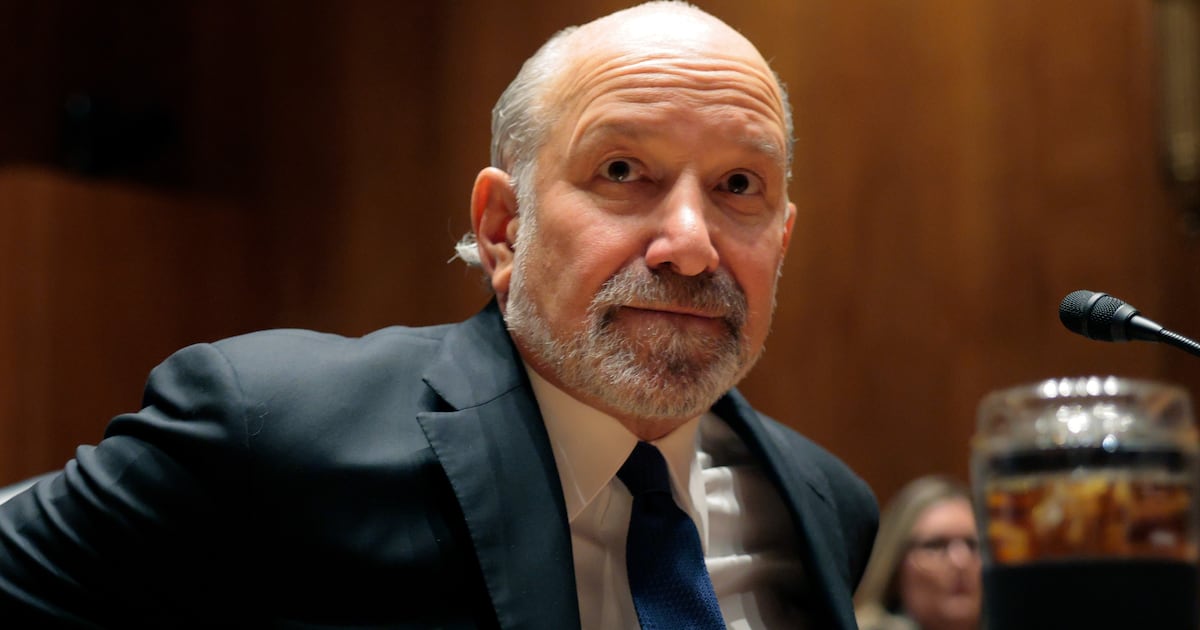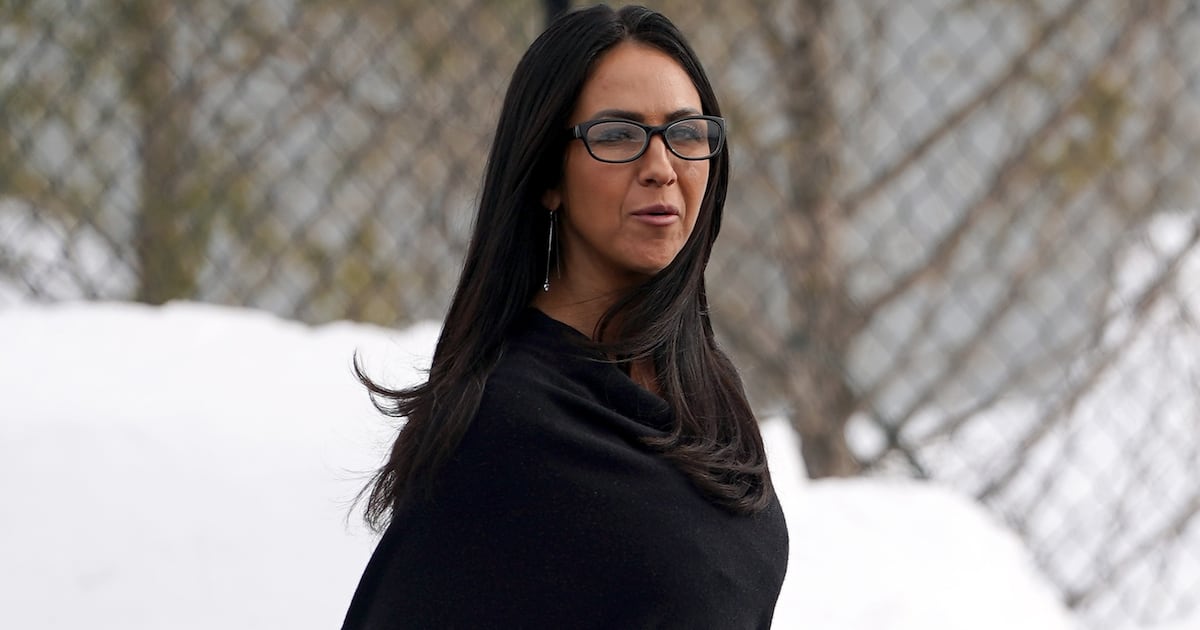The early campaign has been kind to Scott Walker.
He tops the competition in Iowa and New Hampshire, and is a close second in South Carolina. He gets high marks among social conservatives, among the moderate establishment, from Tea Party types. The Washington Post recently called him the first “It” candidate of 2016.
Which, his rivals to the nomination say, is exactly where they want him.
The Daily Beast spoke with strategists working with each of Walker’s top rivals to the Republican nomination, granting those who requested it anonymity in order to speak freely about how they are sizing up the field’s first leader.
The 2016 presidential campaign is still in its earliest stages—no serious candidates have even officially announced—and so most strategists said that they had only begun the process of pouring over Walker’s record.
Which is fine since Walker has begun to provide real-time oppo fodder on his own.
No sooner did Walker emerge as the early poll-leader than he ran into a series of stumbles, most notably refusing to answer whether or not he believed in evolution or whether he considered Barack Obama a Christian. He then declined to criticize Rudy Giuliani after the former mayor said that President Obama doesn’t love America, while Walker sat a few feet away.
“The question for him is, ‘Is he ready for prime time,’ ” said a top strategist to one Walker rival. “He has always been a little cocky, and you are starting to see that being governor of Wisconsin doesn’t necessarily prepare you for storm of a national campaign.”
But much to his rivals consternation, Walker’s poll numbers rose among Republicans in the days after those miscues, as they brought him both name recognition and a sense among Republican primary voters that the liberal media was out to get him.
“I think they made a decision to not answer a lot of tough questions,” said John Brabender, a longtime advisor to Rick Santorum, the former Pennsylvania senator who is considering another bid for president. “It’s strategic. They figure that giving no answer is better than giving a bad answer.”
Walker first ran for office in 1990—back when George H.W. Bush was the leader of the nation and the Republican Party in Wisconsin was a soft kitten compared to its current Tea Party-infused configuration.
Republican operatives say they are just beginning to pour over his record from a decade in the State Assembly, eight years as county executive of the relatively liberal Milwaukee county executive and four runs for governor, including an aborted attempt in 2005 and a failed recall attempt in 2012.
Already Walker has been dogged by alleged improprieties regarding campaign finance laws during the recall campaign and a lack of transparency as county executive
“This is a guy who has literally been in elective office his entire adult life,” said a strategist for one rival campaign. “He has made his living off the government sector, the taxpayer. He has never really, to my knowledge, had any kind of serious existence outside of the public sector.”
All that campaigning, a member of another campaign team added, meant that Walker has been almost continuously running for office for two and a half decades.
That has left enemies in his wake, the Republicans say, and helped turn Walker into a candidate willing to throw sharp elbows at his fellow presidential contenders at a time when the other candidates are still trying to hold the party together.
Now they are getting ready to respond in kind. Several rivals said that the first place to attack Walker was on his conservative bonafides. In such a deep field, evangelical and Tea Party voters looking for fidelity will have plenty of alternatives to choose from if Walker is found to be too soft on immigration, abortion, or gay marriage.
“I think he tries to present himself as this steadfast conservative, but I am not sure the record will match that. He had to get elected in a left-leaning county and then in a centrist state,” added another rival. “And now he is running for the Republican nomination. I think you can easily a line where this guy looks like the kind of person who will say anything to get elected.”
Walker has already come under criticism for recently shifting his position on abortion and immigration. Next up is likely to be his record as governor of Wisconsin. Walker’s constant mentioning of his battles with the unions is already drawing eye-rolls among his rivals, particularly when he suggested that the battle prepared him to take on the Islamic State.
Walker’s fellow Republicans noted that other states pushed through similar reforms without the drama that Walker brought upon Wisconsin, and that even with the gutting of the power of the public sector unions, the state has lagged behind the rest of the nation economically.
“He gave a good speech in Iowa. I grant him that,” said an aide to a rival campaign. “And so what happens next is that conservative voters just assign to him everything they want from a conservative candidate. They assume he shares all the values that they do, and we will have to see if it holds up under scrutiny.”
For some candidates, such evolution could be brushed off, but Walker is trying to thread a unique needle in the GOP primary this year. For months, the conventional wisdom has been that there are not one but two primaries—an establishment one, featuring Bush and Christie and possibly Marco Rubio, and a conservative primary featuring Ted Cruz, Rand Paul, Mike Huckabee and the rest. Walker is perhaps the only candidate trying to play in both buckets. And so if his rivals can tarnish him just a bit, they figure that Walker could quickly become every voters’ second choice.
Every candidate in the field comes with weaknesses, but Walker’s rivals admit he seems to have fewer than the rest of the field.
There was his perceived charisma deficit, but Walker’s fiery speeches at the Iowa Freedom Summit and at CPAC earlier this year laid some of those questions to rest for the moment--even though the other campaigns said that Walker received a boost mainly from outpacing very low expectations.
Now Walker looks like one of the few candidates who can unite the various wings of the party. The business wing likes him for his willingness to curb the power of Wisconsin’s labor unions. Tea Partiers hail his Midwestern workingman persona, the guy who brought a bag lunch into office every day.
Social conservatives are reassured by his upbringing—he is the son of a Baptist pastor—and his apparent comfort with matters of faith.
Republicans say that regardless, they expect Walker’s numbers even out as voters start to tune and hear the other candidates’ pitches. 2016 could be much like 2012, which saw nearly every contender, from Michelle Bachman to Donald Trump briefly lead in the polls.
“I call it the Oprah primary,” said Rick Wilson, a Florida-based political consultant. “‘You get a boomlet! And you get a boomlet! And you get a boomlet.’ Each candidate won’t just get one, they will get several.”
Of course, no campaign aide will concede that they like seeing their candidate mired just above the margin of error in public polls. Yet they also quickly say that they do no envy Walker his position. Nothing can prepare a candidate for a national campaign, and Walker’s early polling leads mean that every stumble will be magnified, while the other campaigns say that their candidates will still be able to make mistakes that go unnoticed. In 2012, Rick Santorum trailed for much of the year headed into the Iowa caucuses and ended up pushing Mitt Romney to the brink. Rudy Giuliani was the front-runner for all of 2007, building up a campaign that could not sustain the expectations laid on him.
“Expectations are high, and he is under a microscope,” said Mike Dennehy, an aide to Rick Perry’s campaign in New Hampshire. “I’ve been on both sides in these races, at the top and at the bottom, and starting out at the top can be extremely difficult.”





